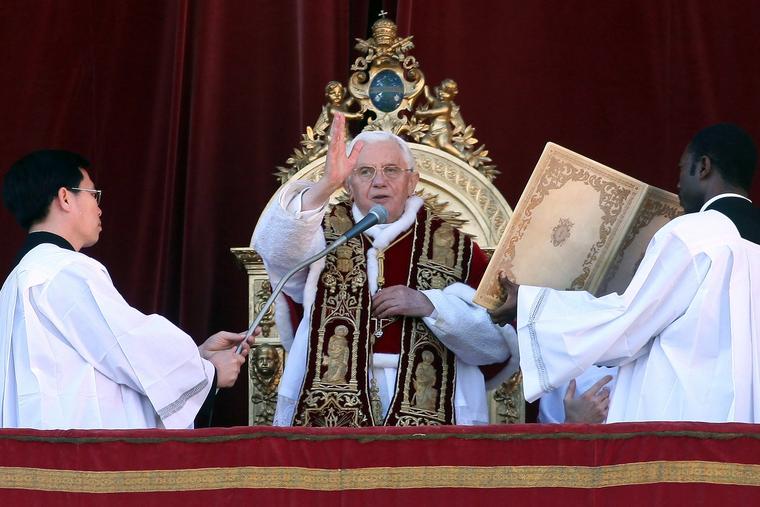- Feb 5, 2002
- 166,616
- 56,252
- Country
- United States
- Faith
- Catholic
- Marital Status
- Married
- Politics
- US-Others
A recent Vatican News article used a 2000 instruction by Cardinal Joseph Ratzinger to justify the blessing of irregular couples.
On Feb. 27, Vatican News published an articleheadlined: ‘Fiducia Supplicans,’ Non-liturgical Blessings and Pope Benedict’s Distinction.
The aim of the article was to assert that distinguishing between rituals inserted into liturgical books and pastoral or spontaneous prayers is the same criterion now being used to admit the possibility of blessing irregular couples.
The article juxtaposes the recent Declaration with some passages from the Vatican instruction Ardens Felicitatis, promulgated by Cardinal Joseph Ratzinger and the Congregation for the Doctrine of the Faith on Sept. 14, 2000.
That document concerned prayers and how they can obtain healing from God, and it arose from the need to bring order to the confusion of those years about prayer gatherings and the charism of healing.
However, the comparison that the Vatican News article makes between these two documents is completely wrong.
Firstly, it’s important to point out that prayer is an insistent request, as the word itself indicates, while a blessing is a formula of approval (bene dicere) from above, that is, from God.
Continued below.

 www.ncregister.com
www.ncregister.com
On Feb. 27, Vatican News published an articleheadlined: ‘Fiducia Supplicans,’ Non-liturgical Blessings and Pope Benedict’s Distinction.
The aim of the article was to assert that distinguishing between rituals inserted into liturgical books and pastoral or spontaneous prayers is the same criterion now being used to admit the possibility of blessing irregular couples.
The article juxtaposes the recent Declaration with some passages from the Vatican instruction Ardens Felicitatis, promulgated by Cardinal Joseph Ratzinger and the Congregation for the Doctrine of the Faith on Sept. 14, 2000.
That document concerned prayers and how they can obtain healing from God, and it arose from the need to bring order to the confusion of those years about prayer gatherings and the charism of healing.
However, the comparison that the Vatican News article makes between these two documents is completely wrong.
Firstly, it’s important to point out that prayer is an insistent request, as the word itself indicates, while a blessing is a formula of approval (bene dicere) from above, that is, from God.
Continued below.

‘Non-Liturgical’ Blessings Do Not Exist
A recent Vatican News article used a 2000 instruction by Cardinal Joseph Ratzinger to justify the blessing of irregular couples.
